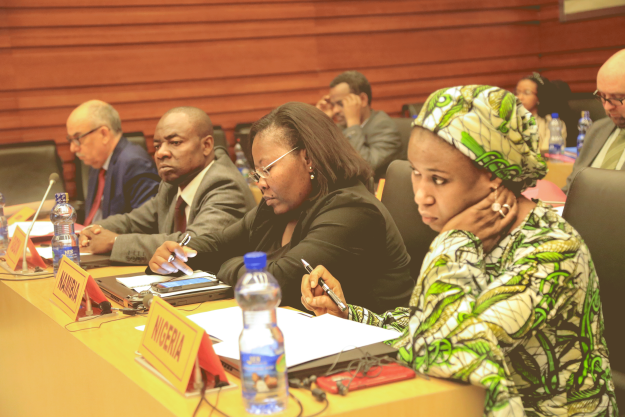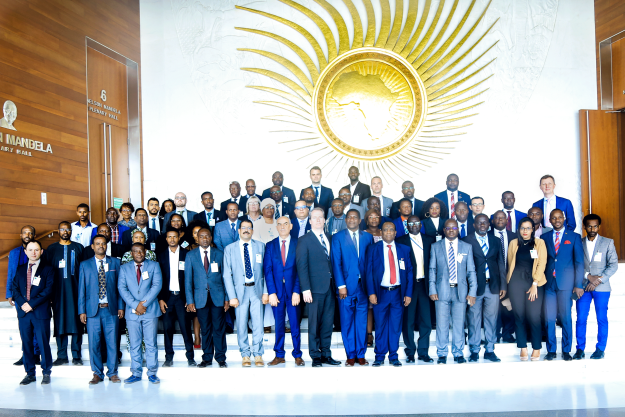
African National Authorities discuss the design of a new phase of the Organisation’s Africa Programme, at 17th Regional Meeting
THE HAGUE, Netherlands – 19 June 2019 – African National Authorities from 34 Member States of the Organisation for the Prohibition of Chemical Weapons (OPCW) gathered at African Union headquarters to discuss the design of a new phase of the Organisation’s Africa Programme, at their 17th Regional Meeting in Addis Ababa, Ethiopia, from 12 – 14 June.
In his opening remarks, the Director of the Peace and Security Department of African Union, Dr Admore Kambudzi, underscored the role of the Chemical Weapons Convention (CWC) in ensuring security on the whole African continent. Furthermore, the Director-General of the Ethiopian Chemical and Construction Inputs Industry Development Institute, Mr Samuel Halala, welcomed the progress achieved throughout all four phases of the Africa Programme and called for an upgrade to optimise its implementation.
Acting Director of OPCW’s International Cooperation and Assistance Division, Mr Shawn DeCaluwe, noted the positive feedback that the Secretariat regularly received from States Parties on the Programme’s implementation and outlined the obstacles on the path to the complete and effective elimination of chemical weapons.
During the meeting, participants shared their views on the needs, priorities and funding models of the next phase of the Africa Programme. They discussed which thematic areas should be prioritised and which measurable results can be achieved. In addition, National Authority representatives shared their experiences participating in OPCW programmes and explained how they benefited.
The Secretariat presented to the participants an updated version of the National Implementation Framework, a document that aims to guide National Authorities in planning their activities related to the Convention’s implementation.
The meeting was attended by representatives from Algeria, Angola, Benin, Burkina Faso, Burundi, Cameroon, Congo, Côte d’Ivoire, Democratic Republic of the Congo, Ethiopia, Gabon, Gambia, Ghana, Guinea-Bissau, Kenya, Malawi, Mali, Mauritania, Mauritius, Morocco, Mozambique, Namibia, Nigeria, Senegal, Seychelles, Sierra Leone, Somalia, South Africa, Sudan, Tanzania, Togo, Tunisia, Zambia, and Zimbabwe; as well as officials from the African Union Commission, Intergovernmental Authority on Development, World Customs Organization and International Council of Chemical Association.

Background
As the implementing body for the Chemical Weapons Convention, the OPCW, with its 193 Member States, oversees the global endeavour to permanently eliminate chemical weapons. Since the Convention’s entry into force in 1997, it is the most successful disarmament treaty eliminating an entire class of weapons of mass destruction.
Over 97% of all chemical weapon stockpiles declared by possessor States have been destroyed under OPCW verification. For its extensive efforts in eliminating chemical weapons, the OPCW received the 2013 Nobel Peace Prize.
